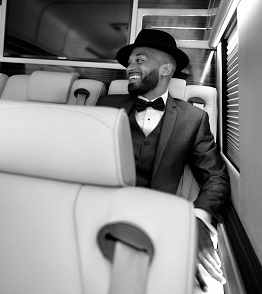This month’s professional spotlight is Mitchellel Sium, an Eritrean-American singer and songwriter. Read this month’s spotlight to learn more about Mitchellel and his path to success in this challenging industry.
Could you briefly explain some of your responsibilities in your current career role?
I’m a singer/songwriter. I sing and write songs for myself and others. I’ve been featured on songs w/ Tip, Scarface, Snoop, Jeezy and more. I’ve written for Ty Dolla $ign, Watch The Duck, Lil Duval, Charlie Wilson, and a few others. I’m also the co-owner of a recording studio in Hollywood, CA.
You are a musician, can you tell us how you decided on this career path?
I feel like this is what I was chosen to do. Everyone has God-given gifts, and I was blessed to find mine at an early age. From that point on it was just about putting in the necessary time and work it takes to learn everything I could about my craft. I knew that if I did that diligently, the money would eventually follow.
Recently the world and the Eritrean Community was devastated by the loss of Ermias Asghedom aka Nipsey Hussle. As an Eritrean, an artist, a member of the music industry, how has that loss affected you?
The loss of Ermias affected me profoundly. He meant a lot to a lot of different people, so the impact of this loss is widespread.
It was probably 15 years ago when my father returned from an LA trip with a flyer of Nip’s face. He told me that it was his friend’s son who was a rapper in LA. From that point on, I followed his career and grew to be a fan. I was doing music myself, so I always figured our paths would eventually cross….and about 5 or 6 years ago, they finally did.
When we met, I told him I was half Eritrean, which pleasantly surprised him. But then I went on to explain to him how our fathers were both childhood friends. And once they both migrated to the States, they shared an apartment in DC. Years later, Nip’s father, Dawit, and my father, Tzehaie, eventually went on to both have kids. And of course, two of those kids turned out to be Ermias & I. That makes us both first generation kids here in America. Ever since that day, it was always love when we ran into one another. He was the first Eritrean/American rapper to take it to this level. And that’s a big part of why he means so much to us.
What are some challenges you faced as a musician and how did you overcome them?
I didn’t always have the tools I felt I needed to get the job done, but I always worked with what I had and took advantage of what was around me. Eventually, that lead me to acquire the tools and connections that I was seeking.
I believe that GOD won’t send you on a mission without giving you the necessary tools to succeed. So even when you don’t feel you have enough, you have to believe that you do. You have to ask yourself, “am I utilizing everything that I have available to me?” If you aren’t, then you only have yourself to blame. And if you are, then it’s only a matter of time for you.
You pursued what many in our community would consider a non-traditional career path. Did family and friends try to encourage you to pursue another career path and how did you navigate through that?
This is a career path comes with low odds, so it’s normal to not have much support in the beginning. Your family will most likely attempt to sway you into selecting an alternate career path with better odds. But the thing about music is, if it’s in you, it’s in you.
This career will really test you to see how bad you want it, and how long you’re willing to stay the course. But in the end, it creates the tough skin and strong character you’ll need to thrive in this industry.
What do you consider to be your greatest professional accomplishment?
My greatest professional accomplishment would have to be scoring my first #1 song by writing “Living My Best Life” for Lil Duval.
Is there a philosophy that drives your career?
My philosophy is not much different from Nipsey’s “Marathon mentality”. I always knew it’d be a long ride for me because I don’t really make trendy music. But I’ve learned to appreciate and focus on the journey instead of the destination.
There are many aspects to the music industry. What are career paths for folks that are passionate about music but not gifted rappers/singers etc.?
Yes, there are many other facets of the music industry. For instance, every rapper or singer needs an engineer. And that’s something that you can actually go to school for and receive a degree in.
If you feel like you’re a people-person, with good business sense, and a good ear for music, perhaps you can find an upcoming artist you believe in and manage them.
There are also tour managers that are responsible for going on the road with the artist. They orchestrate & oversee the tour while facilitating the needs of the artist.
You can also be in the business of actually owning a professional recording studio and renting out your recording space. Those are just a few that come to mind.
What’s one piece of advice you would give someone looking to transition into your line of work or into the music industry?
Get ready for a long ride of highs and lows! If your ride is anything like mine, you could be in the game for over 10 years before you see any REAL money. So be prepared to sacrifice the “right now” for the “later”, because it gets greater later. But the work has to be put in, and the time must be served. Most importantly, you better really love it! It’s the love for the music that will carry you through the bumps and bruises. Oh! And I almost forgot the most vital piece of advice. LEARN THE BUSINESS!!!
Outside of all of your hard work and efforts- what do you do for fun? Hobbies?
For fun, I mainly like to travel. Other than that, I just enjoy spending time with my mother, father, brother, sister, and close friends. That’s what matters most in my life.


Great review! Sooo proud of you and thankful for your accomplishments🙏🏾🙏🏾❤️